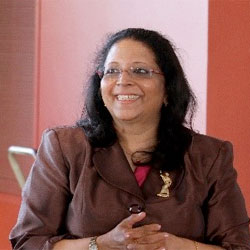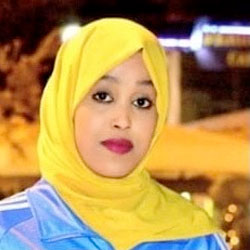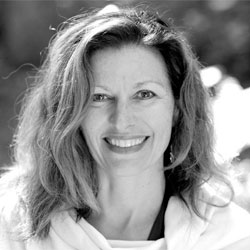Webster Athens Hosts Roundtable Discussion on Global Inequality — Violence Against Women and Girls
February 26, 2021
On Thursday, Feb. 11, Webster Athens hosted a virtual roundtable discussion on Global Inequality — Violence Against Women and Girls in recognition of the ARDN (African Renaissance and Diaspora Network) Red Card Campaign.
Webster University Chancellor Elizabeth (Beth) J. Stroble, invited the extended and international campuses to get involved in this effort. Webster Athens students, faculty, staff and guests joined in a vibrant discussion on eliminating violence against women and girls.
After the invigorating and insightful discussions, students were then shown how to complete the pledge for the Red Card Campaign. To find out more information on the Red Card Campaign, visit the website: www.ardn.ngo.
Gender Inequality: A Global Challenge and the Way Forward
 Three presenters gave the background for the discussion. The first presenter, Dr. Padmini Murthy, is a professor and director of Global Health at New York Medical College. She has
also been a physician, activist, author and public health specialist for the past
28 years in several countries. In addition, she serves as a representative to the
United Nations for the Medical Woman’s International Association (NGO). She is widely
published and the author and editor of Woman’s Global Health and Human Rights and Technology and Global Health. Dr. Murthy’s daughter participated in the Odyssey in Athens study abroad program
several years ago, and she and her daughter have remained faithful friends of the
program. She presented on “Gender Inequality: A Global Challenge and the Way Forward.”
Three presenters gave the background for the discussion. The first presenter, Dr. Padmini Murthy, is a professor and director of Global Health at New York Medical College. She has
also been a physician, activist, author and public health specialist for the past
28 years in several countries. In addition, she serves as a representative to the
United Nations for the Medical Woman’s International Association (NGO). She is widely
published and the author and editor of Woman’s Global Health and Human Rights and Technology and Global Health. Dr. Murthy’s daughter participated in the Odyssey in Athens study abroad program
several years ago, and she and her daughter have remained faithful friends of the
program. She presented on “Gender Inequality: A Global Challenge and the Way Forward.”
She addressed women and girls, and not only, from every part of the world or sector of society, telling them firmly that victims of violence, domestic, or any other related form of it are not at fault. In fact, she emphasized that there are “243 million women suffering from violence worldwide.” The reasons provoking this can be lack of food, economic, social-economic, the global pandemic, etc. Dr. Murthy noted that domestic violence is a “pandemic within a pandemic” since it has risen immensely due to the lockdown.
Consequently, these women/girls suffer from what Dr. Murthy referred to as “reduced inequality” because they need more help and support from us than any other person. Obviously, this is not a simple matter, but these women and girls need to know that they are not alone; that there are “sympathetic” others or organizations that they can reach out to for help or assistance. To illustrate, Dr. Murthy reported that in France and Spain, pharmacies and supermarkets have helpline services readily available to them; in France, there are hotel rooms to house or accommodate these inflicted women; there are local neighborhood watches, and we can do our part by being alert within our neighborhoods and social circles, checking with each other so that we can avoid possible suicides, or any other tragedy. In closing, domestic violence, or any other form of it, should not be tolerated, but it can be a “liberating” call! In the words of the Prophet Mohammed, “You don’t hit a woman, even with a flower!”
Violence Against Women in Somalia
 International Relations student at Webster Athens, Amish Ali Aden, spoke on “Violence Against Women in Somalia,” providing a personal account of what
is happening in her country. She spoke about the unequal and unrighteous treatment
of women by men in Somalia. Since Somalia is based on clan ideology, Aden stressed
that women in the “minority” group often receive less justice and respect than women
in the “majority” group. Thus, these women become targets and victims of sexual violence
and abuse, rape, exploitation, human trafficking, etc. Moreover, Aden disclosed the
cultural tradition of “female genital mutilation; the cutting and sewing of a girl’s
genitalia to save her virginity.” This was performed by older women in the villages
and not by doctors. According to Aden, “98 percent of Somalian women have undergone
this,” confiding that she too was a victim of this horrific procedure. This is an
example of violating a woman’s rights. As a result of this, Aden would like to be
a woman’s advocate in the future, especially catering to women in her country.
International Relations student at Webster Athens, Amish Ali Aden, spoke on “Violence Against Women in Somalia,” providing a personal account of what
is happening in her country. She spoke about the unequal and unrighteous treatment
of women by men in Somalia. Since Somalia is based on clan ideology, Aden stressed
that women in the “minority” group often receive less justice and respect than women
in the “majority” group. Thus, these women become targets and victims of sexual violence
and abuse, rape, exploitation, human trafficking, etc. Moreover, Aden disclosed the
cultural tradition of “female genital mutilation; the cutting and sewing of a girl’s
genitalia to save her virginity.” This was performed by older women in the villages
and not by doctors. According to Aden, “98 percent of Somalian women have undergone
this,” confiding that she too was a victim of this horrific procedure. This is an
example of violating a woman’s rights. As a result of this, Aden would like to be
a woman’s advocate in the future, especially catering to women in her country.
Wounds, Grace and Superpowers
 Jennifer Moiles refers to herself as a healer, dancer, activist, disruptor, catalyzer and keeper
of the hearth. She is the founder and director of LERRN (Love Elevates Refugee Relief
Network) and has been financially sponsoring several refugee students at Webster Athens.
She focused on possible solutions in her talk, “Wounds, Grace and Superpowers.”
Jennifer Moiles refers to herself as a healer, dancer, activist, disruptor, catalyzer and keeper
of the hearth. She is the founder and director of LERRN (Love Elevates Refugee Relief
Network) and has been financially sponsoring several refugee students at Webster Athens.
She focused on possible solutions in her talk, “Wounds, Grace and Superpowers.”
Moiles suggested that Mother Earth is the infinite resource and inspiration for all of us and sought a place where women can come together and share their stories. This place she embraces is the Red Tent or Moon Lodge, where, especially the young, can be guided by older and wiser women. This effect of belonging allows cleansing of body and soul, gathering wisdom for oneself and the whole tribe, renewing and refreshing one’s whole being, tending to vulnerabilities and dreams, allowing space for insights to come, letting go of emotional debris, even rage, among others.
Moiles spoke highly about the art of “going with the flow.” This concentrated on the following key messages: we women need to slow down in order to feel; also, grace is deep listening, which entails forgiveness, humility, emotional intelligence. What is most fundamental and substantial to this, Moiles stated, “is us women coming together in genuine support, for we are the sacred and responsible pillars by belonging.” She concluded with her most powerful and penetrating words: “Don’t fear your darkness but trust it. Trust your own darkness!”
